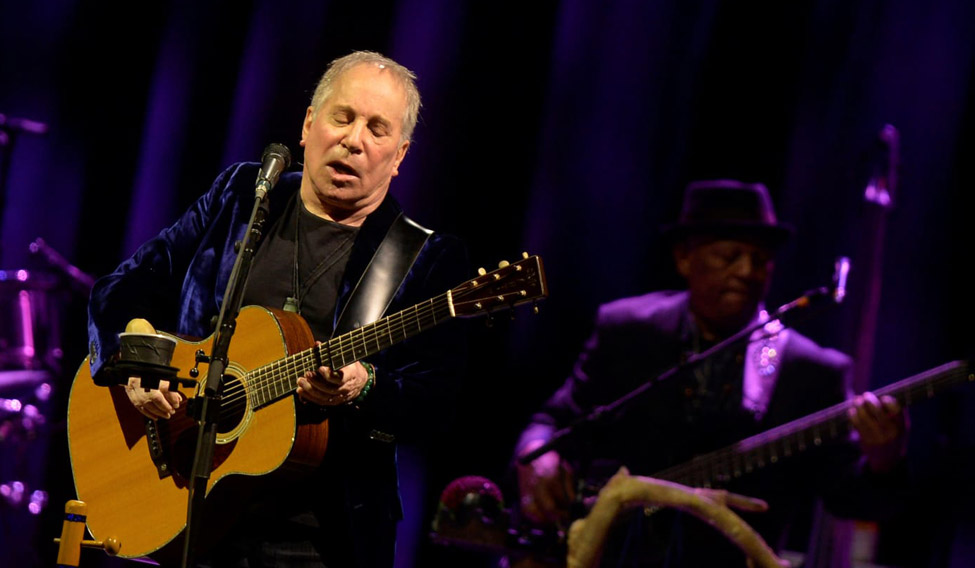Despite numerous threats and insults, American musician Paul Simon was adamant. Some people called the erstwhile one-half of Simon and Garfunkel naive; others dubbed him a man who had, with his actions, damaged the global movement for civil rights. The year was 1986, and Simon had just released Graceland (which would go on to garner critical acclaim), an album which paved new ground in the way that it seamlessly fused the pop and folk rock of the West with mbaqanga, zydeco and other musical traditions of South Africa—some of the recording sessions were conducted in the country.
One could say with certainity that it was a risk no other artist would have willingly taken. The UN had declared a cultural boycott on the then apartheid state. Its resolution was clearly worded, with no space for ambiguity. "The United Nations General Assembly request all states to prevent all cultural, academic, sporting and other exchanges with South Africa. Appeals to writers, artists, musicians and other personalities to boycott South Africa. Urges all academic and cultural institutions to terminate all links with South Africa." Globally, musicians—like Stevie Wonder and Peter Gabriels—had come together with protest songs. Numerous artists, led by Steven Van Zandt, registered their anger clearly against the apartheid state in Sun City.
Simon was first introduced to African music with Gumboots Accordion Jive Vol 2, a bootleg tape of South African musicians, at a time when his personal and professional life had hit rock bottom. Simon, who had first found success with Art Garfunkel and the album Sounds of Silence, had parted ways with his artistic partner (with whom he shared an on-again, off-again relation). His marriage with Carrie Fisher had crumbled, and his previous solo album Hearts and Bones was nothing less than a commercial disaster. The Gumboots record came as a breath of fresh air for him, and he immediately started collaborating with artists from Johannesburg.
The record was masterful. Simon's trademark melodies weaved in and out of the bouncy, upbeat South African rhythms, never once patronising, never once overpowering; his voice was much like a kite perfectly framing the contours of a jetstream, weaving shapes that revealed to the Western listeners the tenacity of rhythms from the black man's heartland. With the exception of the opening song The Boy and The Bubble, Simon never gets overtly political. That was not his thing. The uncharacteristically upbeat numbers strangely contrasted with the melancholy and brooding isolation of his early numbers. Songs from the album—like Diamond on the Sole of Her Shoes and his era-defining piece Graceland—upheld a politics of their own. When grilled about breaking the cultural boycott, Simon would later say in an interview, "I'm with the artists. I didn't ask the permission of the African National Congress (ANC). I didn't ask permission of Buthelezi, or Desmond Tutu, or the Pretoria government. And to tell you the truth, I have a feeling that when there are radical transfers of power on either the left or the right, the artists always get screwed."
True to his word, his record and the performances that came after helped popularise a large number of African musicians, who were hitherto languishing as the unintended victims of the boycott. Most prominent among them, who would go on to have tremendously successful music careers were guitarist Ray Phiri and the group Ladysmith Black Mambazo. Simon, throughout the record, never appropriated their culture and ceded equal (if not more) space to unknown practitioners of an exotic art in a far-away continent.
On Tuesday, Paul Simon has finally decided to rest his laurels after a long and illustrious career in music. In a statement on Twitter, Simon described his retirement as a “natural end” to his career that he wanted to spend more time with his wife and children. The death of his lead guitarist Vincent Nguini contributed to the decision, he wrote.
A message from Paul Simon — February 5, 2018https://t.co/kdNRIgKswR pic.twitter.com/EFq3Ry4cUp
— Paul Simon (@PaulSimonMusic) February 5, 2018
Was Graceland, and not his other popular numbers like Sound of Silence and Bridge Over Troubled Water, the pieces that defined his musical career? In a way, the entire album contained within itself the story of rock n' roll. The horns, accordion and the jaunty South African rhythms were strangely reminiscent of the American country music. It was Simon's no small contribution to the demon that was rock n' roll—a colossus that consumed and fused within itself, genres as different as the white man's folk music and the black man's blues. The name of the album (and the defining song within it), Graceland, points to Simon's figurative attempts to find his way to the roots, the mecca of 50s R&B (Elvis Presley's residence in Memphis, Tennesse, is named Graceland). But, it was under the African skies that he literally discovered himself.








